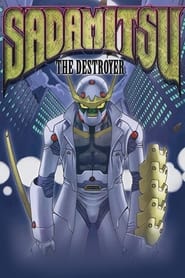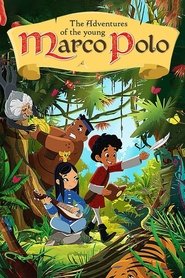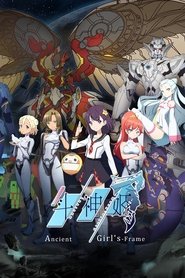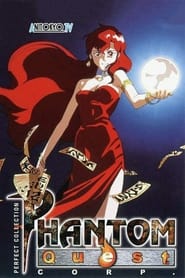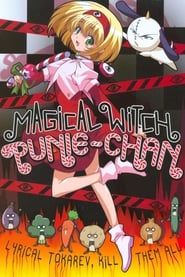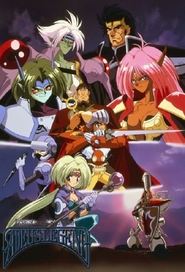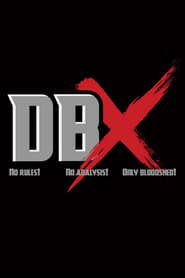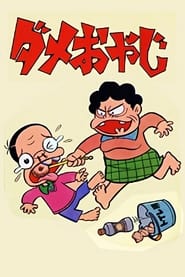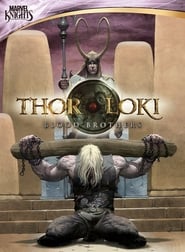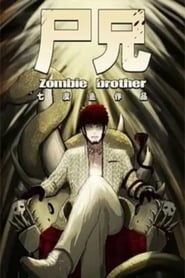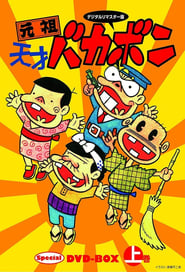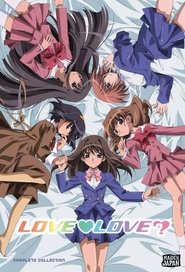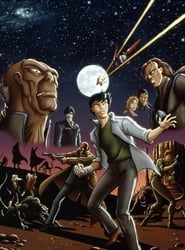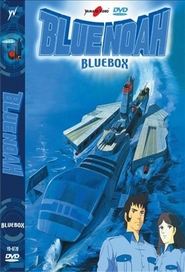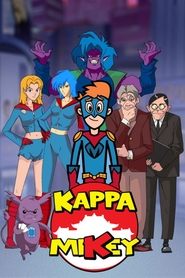Animation TV Series - Page 311
-
Sadamitsu the Destroyer
2001
star 9The earth is being overrun by Alien invaders and, while on a mission to stop the invaders, an assigned Attendant is injured. He seeks the help of a human named Sadamitsu. Sadamitsu makes it his mission to rid the world of the invaders, to prevent the coming of the ultimate enforcer, the Vulture. The problem is the Vulture is already here, and buried in Sadamitsu's past is the reason the Vulture hasn't already destroyed the Earth. -
The Adventures of the Young Marco Polo
2013
star 7.5In a time when the earth was believed to be flat and there was much to discover, young Marco Polo sets off to find his missing father, who vanished while exploring the Road to China. Accompanied by his strong, good-natured friend Luigi, the "Chinese princess" Shi La Won, and their tame bat Fu Fu, the brash Marco is ready to take on the world with his great curiosity, his burning thirst for knowledge...and his gift for getting into trouble. With Marco's father's journal as a guide, their wild adventure takes them through distant lands and mystical times. -
Ancient Girl's Frame
2021
Ancient Girl's Frame
2021
star 4.6At the end of the 21st century, the discovery of a new energy source called "DG energy" (short for "divine grace energy") has revolutionized Earth's economy and allowed humanity to colonize space. However, when the initial expedition reaches Pluto, they are attacked by a mysterious, giant life-form known as "Nergal."The Earth Alliance Army fights back by creating an "AG Unit" using ancient robot weapons known as the "G's Frame" which were excavated from archaeological sites all around the world. Girls with special qualities known as "Ancient Girls" can pilot these robots against the Nergal. However, the first AG Unit suffers heavy casualties in the Jupiter Trojan campaign, and the pilot of Unit 04, Minamiya Reiu, goes missing-in-action...Years later, Minamiya Reika, the younger sister of Reiu, enlists with the AG Unit to search for her sister and to protect the Earth from the Nergal. A story of friendship, ancient robot weapons, and battles to the death with the Nergal ensues. -
Phantom Quest Corp.
1994
Phantom Quest Corp.
1994
star 6.2Ayaka Kisaragi is a beautiful woman descended from a long line of Japanese exorcists. However, bored with their traditions, she started her own business, Phantom Quest Corp. Although she is very competent with her skills, Ayaka's own bad habits often cut into the company's meager earnings and interfere with paying the various experts whose help she usually depends upon. -
Urara Meirocho
2017
Urara Meirocho
2017
star 5.3This is Meiro-machi (Labyrinth Town), the town of fortune-telling. In town, there is a fortune-telling shop called Urara, where girls aspiring to be fortune-tellers come from all over the country. Chiya, who was raised in the mountains, comes to the town with a purpose, but what is it exactly? There, she meets Kon who is always serious, Koume who loves all things western, and the shy Nono. Their fun days of living together as apprentice fortune-tellers are about to begin. -
Magical Witch Punie-chan
2006
star 6.7In order for the princess of Magical Land, Punie Tanaka, to become queen she must become a transfer student in a Japanese high school. Due to her potential to become the next ruler, she has many enemies that wish to assassinate her. This proves difficult to them because Punie is both skilled at martial arts and possesses magic powers which she uses to quickly defeat her enemies. -
Lord of Lords Ryu Knight: Adeu's Legend
1994
star 5.8In an old world clash between light and darkness (as always), the evil Lord Uongadis is sealed away under a gigantic monument called the Earth Blade. 20 years have passed since the wars, and now the threat of evil being brought back is greater than ever as demons try to revive their lord. -
DBX
2016
DBX
2016
star 6It's all out carnage as fighters square off in this DEATH BATTLE exhibition. No rules! No analysis! Only bloodshed! -
Dame Oyaji
1974
Dame Oyaji
1974
-
Yagami's Family Affairs
1990
Yūji Yagami is a high school student with an unusual problem. Yūji has developed a crush ob his mother, Nomi, who is abnormally youthful in both her looks and mannerisms. Nomi however, is oblivious to Yūji's Oedipus complex and unknowingly tempts him with her overly-passionate displays of affections to both her husband and son. The situation is further complicated when Yūji receives a love letter from someone else on Valentine's Day. -
Thor & Loki: Blood Brothers
2011
star 6.5Inspired by the acclaimed graphic novel from Robert Rodi and Esad Ribic, Marvel Knights Animation's "Thor & Loki: Blood Brothers" takes a powerful look inside the minds of Thor & Loki, brothers in the mythical land of Asgard and seemingly forever enemies. But just why does Loki hate his brother Thor? And could it be that this master of mischief isn’t really the villain he’s been branded? Loki's insatiable lust for power and his feud with Thor take on new meaning in this resonant epic. -
Zombie Brother
2013
-
Ganso Tensai Bakabon
1975
Ganso Tensai Bakabon
1975
star 6If the first Bakabon series wasn't the "original", then what could Ganso Tensai Bakabon hope to achieve? How about wilder and more dangerous stories, stranger and crazier new characters, and a Papa who's more idiotic than ever? With a "koredeiinoda!" to end his bizarre escapades, this take on Fujio Akatsuka's classic series set the standard for all adaptations to come, and put the anarchic energy of the original manga into animation! -
Love Love?
2004
Love Love?
2004
star 7Naoto is the writer of the CosPrayers TV show and he has a crush on one of the actresses, Natsumi Yagami. -
五等分の花嫁∽
2023
-
Invasion America
1998
Invasion America
1998
star 6.6Invasion America is an animated science fiction miniseries that aired in the prime time lineup on The WB Television Network and later as a part of the Kids' WB programming block. Produced by DreamWorks Animation, the series was created by Steven Spielberg and Harve Bennett, who also served as executive producers. -
Space Carrier Blue Noah
1979
star 7.5Space Carrier Blue Noah is a science fiction anime TV series produced by Office Academy which ran in Japan from October 13, 1979 through March 30, 1980. It was later distributed overseas in English by West Cape Corporation under the name "Thundersub". The series was called "Nave Anti-Espacial" in many Spanish-speaking countries. Set in the year 2052, Earth has managed to find peace until the arrival of the Death Force – ruthless aliens from a dying solar system – who are desperately searching for a new home. Attacking the Earth with a massive satellite ship called Terror Star, the aliens proceed to terraform the planet to make it their own. For mankind there is one hope: it's up to Colin Collins and a small band of his fellow surviving students to crew a top-secret submersible vessel that can fight the invaders at sea or in space. -
Kappa Mikey
2006
Kappa Mikey
2006
star 6.3Kappa Mikey is an American animated sitcom created by Larry Schwarz, who chose 4Kids Entertainment as the worldwide licensing, marketing and official promotional agent of the series. The show is Nicktoons's first original half-hour series, bought during the same period as other Animation Collective series such as Three Delivery and Speed Racer: The Next Generation, as well as Flash shows from other studios, such as Edgar & Ellen and The Secret Show, though the latter was made from BBC. The series premiered on January 6, 2006, as Nickelodeon aired several reruns and premieres as a promotional movement from August 20, 2006 to January 2007. The series is MTV's first global acquisition, and is currently available on iTunes. -
Can I Make Your Ears Happy in 180 Seconds?
2021
star 4.7ASMR or Autonomous Sensory Meridian Response is the nerve-tingling or relaxing response and sensation one gets to stimuli such as certain sounds or sights. As the title indicates, the anime will let viewers experience ASMR in 180 seconds. In the story, the heroine challenges her classmates to share in her hobby of recording ASMR works. -
Геройчики
2022
